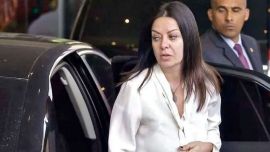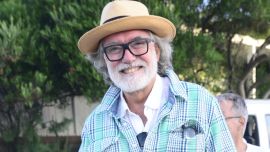Shinzo Abe, the 67-year old former prime minister fatally shot on Friday, built a legacy during a record-breaking tenure as a foreign policy hawk, but will likely be most remembered for an aggressive economic-growth strategy that bore his name.
Abe died in a hospital hours after being shot during a campaign event for the ruling Liberal Democratic Party in Nara, western Japan, Finance Minister Shunichi Suzuki said. The death was confirmed by a doctor during a hospital press conference.
When he came to office for the second time in 2012, Abe launched an unprecedented effort to revive Japan’s flagging economy – what became known as “Abenomics” – based on a surge of monetary easing and government spending. Its success propelled his LDP to six straight election wins, making Abe the country’s longest-serving prime minister, with more than 2,800 consecutive days in office.
The legacy of that policy, including a weaker yen and the Bank of Japan’s ultra-easy support for the economy, remained largely intact even after he stepped down in 2020 – and even after other central banks started raising borrowing costs in 2022 to stem rampant inflation.
The first Japanese premier born after the country’s defeat in World War II – and a vocal defender of its postwar record – Abe sought to end apologies for past imperialism and successfully reinterpreted the country’s pacifist constitution to loosen restrictions on the military. He nonetheless managed to stabilise relations with neighbouring China, where a wave of anti-Japanese protests had raged in the weeks before his second election as leader.
Abe’s reputation as a deft political operator was bolstered by his rush to meet US president-elect Donald Trump in 2016, establishing a relationship that helped Japan avoid the worst – though not all – of the trade and security spats that other US allies endured.
During his tenure, Abe weathered several fund-raising and favouritism scandals on a scale that had toppled past premiers, surviving in part because of a weak and fractured opposition.
Political dynasty
Abe was born September 21, 1954 in Tokyo. His father, Shintaro Abe, was a foreign minister and his maternal grandfather was the prime minister Nobusuke Kishi, whose views Abe has cited as a strong influence.
He was the second of three boys born to Shintaro and Yoko Abe. The eldest, Hironobu Abe, went into business. His younger brother, Nobuo, was adopted by a relative and in 2020 became defence minister, Nobuo Kishi.
Shinzo Abe graduated from the Department of Political Science, the Faculty of Law, at Seikei University, in 1977, according to a government website. Ten years later he married Akie Matsuzaki, who was working at the advertising firm Dentsu Inc. They had no children.
He began his political career in 1993, when he was elected to take over his father’s constituency in the southwestern prefecture of Yamaguchi. The clean-cut, young politician was soon singled out as a future leader and appointed to a position in the prime minister’s office in 2000.
He went on to accompany then-prime minister Junichiro Koizumi on a surprise trip to North Korea in 2002 and became his chief cabinet secretary in 2005. The following year, he took over the leadership of the LDP at 52 – becoming the country’s youngest postwar prime minister.
His triumph was short-lived: Abe stepped down a year later, blaming a chronic medical condition, ulcerative colitis. His exit led to a revolving door of two further yearlong premierships, followed by the LDP’s historic loss of power in 2009. The three years it spent in opposition were viewed as a humiliation for a party that had been in government almost continuously since 1955.
Mending ties
Though his second term in office focused largely on the economy, Abe continued to try to bolster Japan’s presence on the world stage. His bid to amend the pacifist Article 9 of Japan’s US-imposed constitution was unsuccessful, but he loosened restrictions on the military in the face of vehement public opposition, and increased the country’s defence budget.
Abe spent hours on the golf course with Trump in an effort that was called into question when Japan came under the threat of punitive US auto tariffs, forcing Abe to agree to a bilateral trade deal that opponents criticised as giving away too much. Trump later called on Abe’s government to quadruple what it pays to support US troops in Japan.
Abe also devoted energy to trying to resolve a World War II territorial dispute with Russia, which has simmered for seven decades, lavishing hospitality on Vladimir Putin, in a policy that was reversed following the Russian invasion of Ukraine.
While he had more success with a campaign to mend ties with China, which were at their most hostile in decades when he took office, that relationship also turned south after Beijing’s crackdown on Hong Kong.
But it was bread-and-butter issues that won him a degree of public respect. “Abenomics” helped bolster corporate profits and kept unemployment near its lowest in decades. The Nikkei stock average was twice as high when he resigned in August 2020 as it was when he took office.
That, along with a perennially disorganised opposition, helped him win elections, brush aside a series of scandals and crush any potential rivals in the party. In 2019, he smashed a century-old record to become the country’s longest-serving premier.
Covid hit
Everything changed again with the arrival of the coronavirus pandemic. The disease hit an economy already strained from trade disputes and a sales tax hike that Abe finally pushed through in 2019 after two delays.
While Japan’s total Covid-19 death toll remains a fraction of that of other Group of Seven nations, the outbreak forced the postponement of the Tokyo 2020 Olympics. Abe had promoted the event by dressing up as video-game character Super Mario for a cameo at the closing ceremonies in Rio de Janeiro in 2016.
The infection effectively shut down the tourist industry his government had nurtured, and devastated consumption and exports. Even the female workers he had boasted of retaining in the ageing and labour-starved economy began to lose their jobs.
Abe’s handling of the virus came in for intense criticism. At the same time, a fresh scandal surfaced over a former cabinet minister accused of bribing voters to help get his wife elected to parliament’s upper house.
His public support fell to record lows in some surveys, Abe spent less time in the public eye even as the virus outbreak worsened in July and August 2020, sparking speculation over his health.
On Aug. 17, 2020, he went to Keio University Hospital – the hospital that treated him after his 2007 resignation – for what aides told domestic media were tests. He stepped down later the same month, and the reins were taken over by his former right-hand man, Yoshihide Suga, who again lasted only a year.
Abe again made a remarkable recovery, remaining a member of parliament and an outspoken voice on security policy.
His repeated calls for a doubling of defence spending – controversial within and outside Japan – and for a revision of the pacifist constitution, are seen by some as having nudged the once-dovish current Prime Minister Fumio Kishida to take a more robust stance.
by Isabel Reynolds, Bloomberg


























Comments